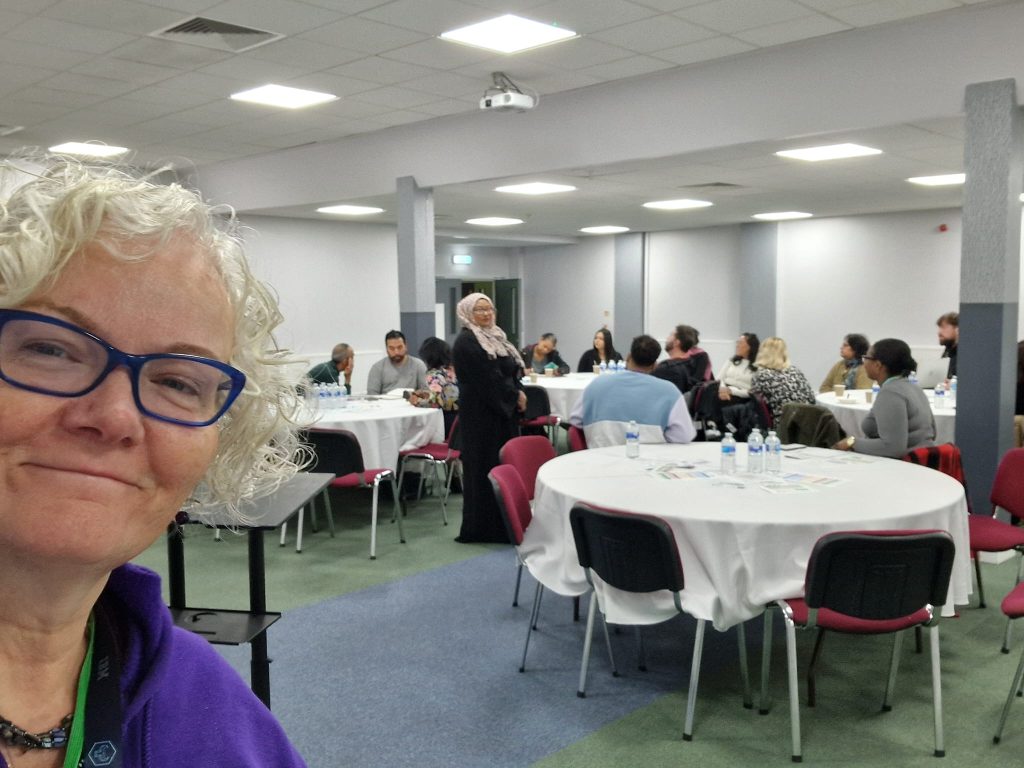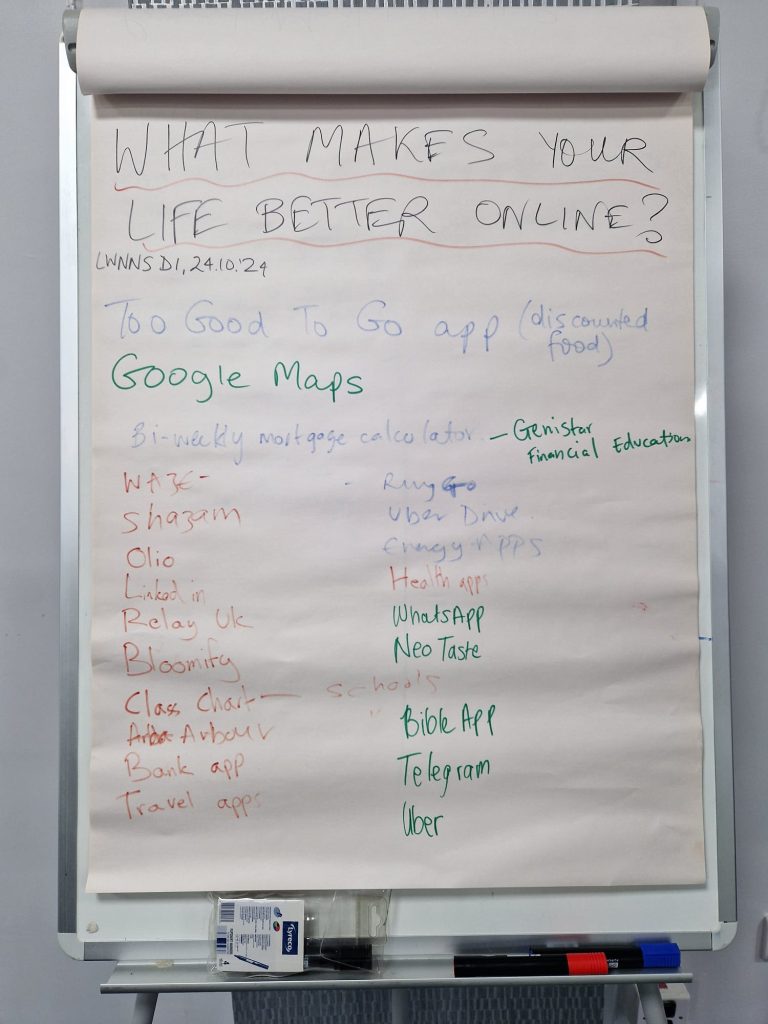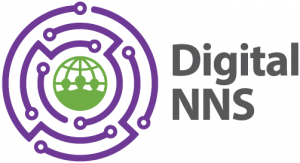Ladywood NNS event participants share their favourite online apps and tools!
On 24 October, our Community Lead Pauline Roche had the pleasure of attending a digital inclusion-themed Coffee Morning session organised by Ladywood NNS. The event brought together community organisations, tech professionals and others working in the digital space to generate conversations around how we can foster an inclusive digital environment.
At the session, Pauline encouraged participants to think about what online apps or tools they find useful and fun to use in their everyday lives. Here, we put together a list of what they shared.

Food and household
To kick off the discussion, Pauline shared her own personal favourite: the Too Good to Go app. This is a tool that aims to reduce food waste by offering surplus unsold food from restaurants and stores at a discount.
Olio is a similar app that aims to reduce not only food waste, but household waste as well. The tool connects neighbours with each other so they can pass on and share spare food or household items that they no longer need.
One participant shared that they use NeoTaste, an app to help you discover new restaurants in your city. They even have great deals for the featured restaurants!
Apps/tools mentioned in this section: Too Good to Go, Olio, NeoTaste
Navigation, parking and travel
A few participants shared navigation, parking and travel apps as tools that make their lives better.
Paper or book maps still have their place in helping us navigate journeys, especially on the many beautiful hikes and walks we have in the UK. When it comes to online navigational apps, Google Maps and Waze are at the top of most people’s minds. Besides providing directions, these apps also alert us to accidents and roadblocks on our journey, and provide the best route to our destination.
Parking apps such as RingGo was also listed. Many carparks now provide options for people to pay for parking via ticket machines or online using an app, making it easier to choose whichever they prefer. Participants also mentioned the Uber app, which is an alternative to traditional taxis.
Apps/tools mentioned in this section: Google Maps (web, Android, Apple), Waze, RingGo, Uber
Health, finance and utilities
One participant wrote that they find bi-weekly mortgage calculators useful, and another participant recommended financial service company Genistar’s website as a good resource for financial tools and education.
Practical tools such as banking apps, energy apps and health apps can be handy to have. Participants didn’t specify specific apps for these categories, as it depends on which bank/energy company you’re with. As for health apps, the NHS and Patient Access apps come to mind as essential online tools. They allow you to book appointments, order prescriptions, view medical records, check where your nearest GP or health service is – the list is endless.
Apps/tools mentioned in this section: Genistar’s Financial Tools, Tips and Resources, NHS, Patient Access
Communication and connection
There are now many ways to stay in touch and connect with people beyond meeting them in person. Participants wrote down WhatsApp and Telegram, which allow them to text, send voice notes, make phone and video calls in their personal and professional lives.
Social media platform LinkedIn also received a mention. It’s a great place to grow your professional network, share ideas and search for jobs. Digital NNS is on LinkedIn by the way, so give us a follow if you’re on there!
Apps/tools mentioned in this section: WhatsApp, Telegram, LinkedIn
Lifestyle
Online tools and apps don’t just have to be for practical use. They can also be fun and used to enrich our lives and support our hobbies.
Some of these apps shared by participants include: Shazam, an app to help you identify that really good song or music that you heard at a café or supermarket and would like to add to your playlist; those into gardening, plants and nature would enjoy Bloomify, an app that will identify plants and insects for you; and the Bible app that allows you to read it anywhere, any time.
Apps/tools mentioned in this section: Shazam, Bloomify, Bible
Education and Accessibility
Some participants who are parents shared apps that they find helpful their busy lives. Arbor is both a portal and an app that helps parents manage everything to do with their children – from making payments for school meals and registering for clubs, to checking on attendance and academic progress.
Class Charts is another useful app that allows schools and parents to communicate with each other, as well as keep track of homework and announcements. There are also online apps and tools to help with accessibility. One participant wrote down the Relay UK app, which helps “deaf, hard-of-hearing, and speech-impaired” people to have conversations over the phone, tablet or PC.
Apps/tools mentioned in this section: Arbor, Class Charts, Relay UK
The word “digital” can often seem intimidating to many people. They think about artificial intelligence and navigating complicated online systems, or they’re worried about how to stay safe online. These are all valid concerns and we should pay attention and talk about them, but being online is not all difficult and scary.
We hope that some of the apps in this list show the benefits of the online world and can help make the lives of you, your family and friends just a bit easier and better.

